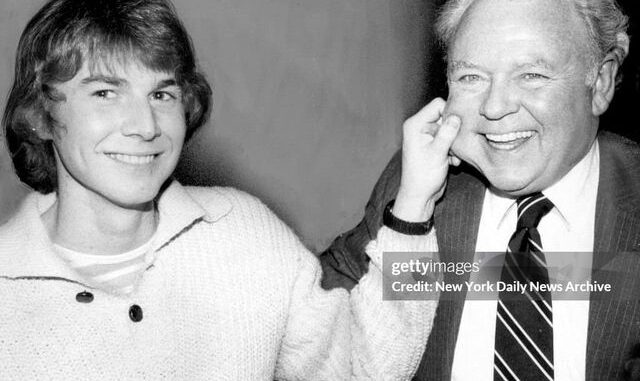
In the annals of television history, few shows have tackled societal issues as boldly as All in the Family. However, even its star, Carroll O’Connor, found himself at odds with the content of one particular episode that nearly led to the show’s demise.
In his memoir, Even This I Get to Experience, creator Norman Lear recounts the intense emotions O’Connor experienced while preparing for the second season’s episode titled “The Elevator Story.” This episode featured a tense situation where Archie Bunker finds himself trapped in an elevator with a diverse group of characters, including a pregnant woman about to give birth.
O’Connor was initially appalled by the script. During a table read, he expressed his disbelief, saying it was “a joke” that anyone could be born in such an absurd scenario. He argued that the logistics of filming in an elevator with multiple actors would be impractical and that the entire premise felt far-fetched.
His frustration escalated to the point where he called an emergency meeting with CBS executives and brought along his attorney. O’Connor labeled the script “repulsive and unplayable,” and refused to participate, leading to a standoff between him and Lear.
As tensions mounted, O’Connor broke down in tears, expressing his deep frustration with the show and the script. Lear described how O’Connor’s emotional collapse made it clear that a resolution needed to be reached, or the show would face cancellation.
Despite these conflicts, Lear decided to proceed with filming. O’Connor ultimately did not show up for the shoot, prompting CBS to officially warn that All in the Family might be canceled.
After further negotiations, the episode was produced. The pivotal moment came when Archie witnesses the birth, leading to a profound change in his character as he experiences the beauty of life. This scene, according to Lear, became a turning point for the show, showcasing O’Connor’s remarkable ability to convey deep emotion.
“The Elevator Story” not only highlighted the complexities of O’Connor’s character but also solidified All in the Family’s reputation for tackling difficult topics. In the end, the episode became a significant moment in television history, illustrating the delicate balance between artistic vision and the realities of production.
